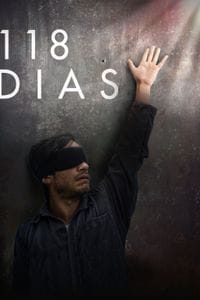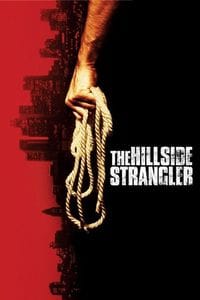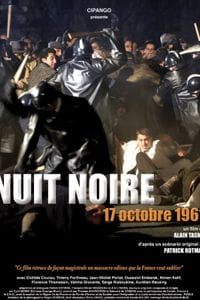Today in Movies

Rosewater (2014)
October
17th,
2009,
Maziar Bahari is released on bail and returns to London
In 2009, Iranian Canadian journalist Maziar Bahari was covering Iran's volatile elections for Newsweek. One of the few reporters living in the country with access to US media, he made an appearance on The Daily Show with Jon Stewart, in a taped interview with comedian Jason Jones. The interview was intended as satire, but if the Tehran authorities got the joke they didn't like it - and it would quickly came back to haunt Bahari when he was rousted from his family home and thrown into prison. Making his directorial debut, Jon Stewart tells the tale of Bahari's months-long imprisonment and interrogation in this powerful and affecting docudrama featuring a potent and performance by Gael García Bernal recounting Bahari's efforts to maintain his hope and his sanity in the face of isolation and persecution-through memories of his family, recollections of the music he loves, and thoughts of his wife and unborn child.

The Hillside Strangler (2004)
October
17th,
1977,
Yolanda Washington, who Gabrielle is based on, is killed
Kenneth Bianchi is a security guard whose attempts to become a police officer are repeatedly thwarted. He moves to California to live with his cousin Angelo and dates a string of women, becoming increasingly preoccupied with sex. Eventually the cousins decide to start an escort agency. After violently killing a prostitute they thought had betrayed them, Kenneth and Angelo begin committing a series of crimes that become a media sensation.

Nuit noire, 17 octobre 1961 (2005)
Parisian authorities clash with the Front de Libération Nationale (FLN) in director Alain Tasma’s recounting of one of the darkest moments of the Algerian War of Independence. As the war wound to a close and violence persisted in the streets of Paris, the FLN and its supporters adopted the tactic of murdering French policemen in hopes of forcing a withdrawal. When French law enforcement retaliated by brutalizing Algerians and imposing a strict curfew, the FLN organizes a peaceful demonstration that drew over 11,000 supporters, resulting in an order from the Paris police chief to take brutal countermeasures. Told through the eyes of both French policemen as well as Algerian protestors, Tasma’s film attempts to get to the root of the tragedy by presenting both sides of the story.










